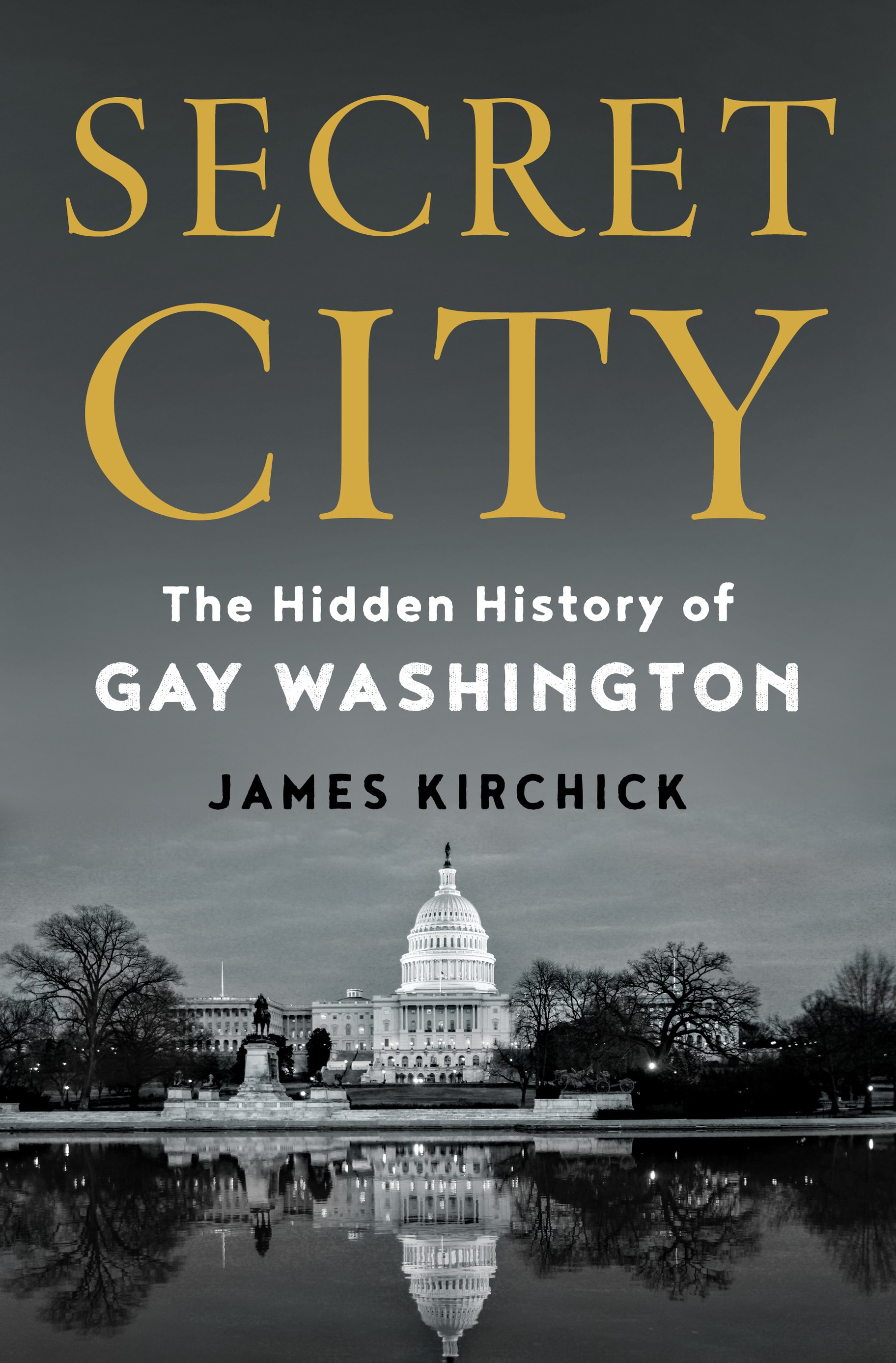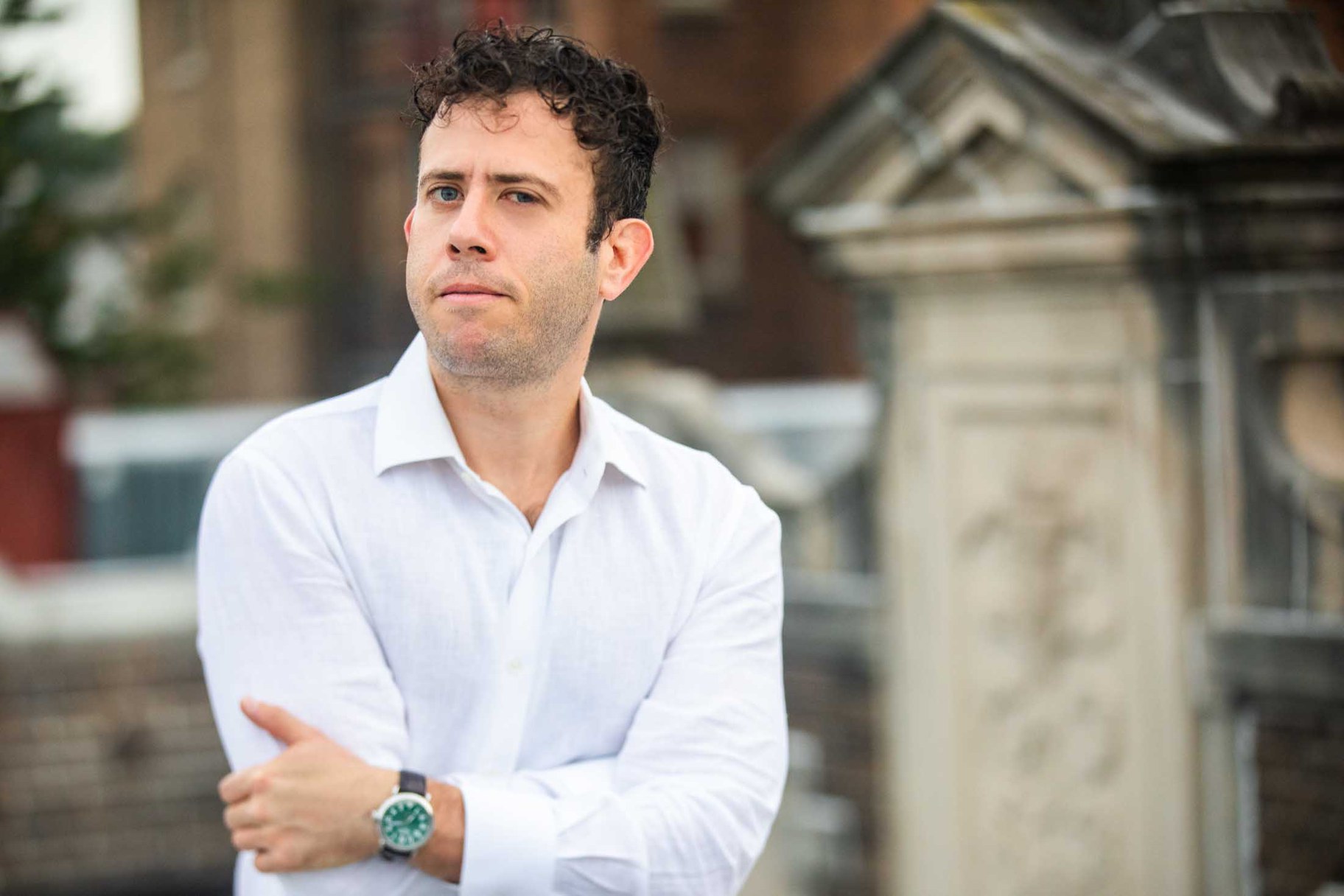Throughout the 20th century, American leaders faced the threat of communism, nuclear war, and economic uncertainty. But another threat was orchestrated that loomed large over the country: “sexual perversion.” Senator Joe McCarthy orchestrated the Lavender Scare, an offshoot of his crusade against communism that demonized gays and lesbians working for the U.S. government by suggesting they were a threat to national security. Thousands of people lost their jobs and privacy.
That story and others are told in James Kirchick’s new book, “Secret City: The Hidden History of Gay Washington.” It details the brave and sometimes salacious characters of Washington D.C.’s gay culture during the 20th century.
To write the book, Kirchick tracked down Washington D.C. insiders from past decades, and obtained documents through Freedom of Information Act (FOIA) requests.
“There was a lot of digging into archives at presidential libraries and personal paper collections,” he says. “There was a lot of prying involved in getting people to talk because this is a subject that, as you can imagine, even today, some people were hesitant to speak about it.”
“No greater secret”
Kirchick says antagonism toward gay people in D.C. surfaced after World War II, when the U.S. became a world superpower and built its national security force.
“Secrecy had not really been a concern in Washington. … And now all of a sudden it is, and there is no greater secret, more shameful secret than that one is a homosexual,” Kirchick says. “And so it is believed that homosexuals are therefore more liable, more susceptible to blackmail. That they will do anything, including betray their country, to protect this deeply shameful secret.”
After the onset of the Cold War, Joseph McCarthy made his infamous speech alleging that he had a list of 205 communists in the U.S. State Department. At the time, a State Department official acknowledged that 91 homosexuals were fired from the unit. As a result, Kirchick says homosexuality, communism, and treason all become interconnected in the public eye.

The “Secret City: The Hidden History of Gay Washington” explores what the author calls the “specter of homosexuality,” where being gay was villainized. Credit: Macmillan Publishers.
The impact of gay people on presidents’ careers
During the 1940s, journalist Whittaker Chambers accused State Department official Alger Hiss of being a communist. The investigation was featured in the first televised congressional hearing in the U.S. in 1948.
Hiss was a homosexual, and Kirchick says the FBI used that information against Chambers.
“They started a whisper campaign that Chambers [was] lying. And the reason he's lying about Hiss being a communist spy is because Chambers is a spurned and vindictive homosexual, that he had lusted after Hiss, and Hiss had rejected him.”
Among the congressmen taking part in the trial was a young Richard Nixon, who Kirchick describes as a “champion of Chambers.”
“This is really what makes Nixon into a national figure. He's just a junior freshman congressman, and he's sitting on the U.S. committee, and this is what really elevates him to the point where just a couple of years later, Dwight Eisenhower picks him to be his vice presidential running mate.”
In April 1953, Eisenhower signed executive order 10450, which listed “sexual perversion” as a reason to be disqualified for a government job and denied access to security clearances.
Kirchick says once Nixon became president in 1969, he was obsessed with homosexuality. That was due in part to the Chambers’ case, his belief that the State Department official wasn’t a communist, and that Chambers and Hiss had been lovers.
Nixon also added homosexuals to the list of individuals he was paranoid over, the author says.
“He saw enemies lurking everywhere. … Homosexuality becomes one of these bogeymen for him alongside radicals and Jews and Blacks — there's this long list of enemies, groups of people. … He was excellent in mobilizing these resentments.”
At the same time, Kirchick says Nixon’s chief speechwriter was Ray Price, who was a gay man, and it was part of a cognitive dissonance that existed among many Washington politicians.
“It's a recurring theme in this book that these presidents — they're able to have close gay friends or gay advisors who play crucial roles in their political careers. And yet, at the same time, it has no bearing whatsoever on the policies that … their administration's pursued, as they were the most powerful [men] in the country.”

“It's a recurring theme in this book that these presidents — they're able to have close gay friends or gay advisors who play crucial roles in their political careers. And yet, at the same time, it has no bearing whatsoever on the policies that … their administration's pursued, as they were the most powerful [men] in the country,” says author James Kirchick. Photo by Tim Devine.
Reagan’s gay admnistration
Many of former President Ronald Reagan’s administration were gay men, Kirchick says. Many of Nancy Reagan’s friends were also gay. While the couple wasn’t totally fine with queerness, Kirchick says they were most comfortable around gay people than most Americans, and especially conservative, politicians. President Reagan also defeated a 1978 ballot initiative that would have banned gay people from teaching in public schools.
But after gaining the support of Christian evangelicals, who can be anti-gay, Reagan stepped away from his public support of the community. Months into his presidency, the AIDS crisis hit, and he took four years to address the disease. Reagan was also friends with actor Rock Hudson, who died of AIDS. But after his death, Reagan shied away from sharing his full feelings in a public statement.
“It says: ‘Nancy and I are profoundly sad’ and profoundly is crossed out in Reagan's handwriting. The sentence, ‘Our memories will be of his humanity’ … changed to ‘He will be remembered for his humanity.’ It's changed in the passive voice. Then this entire sentence — ‘He was our friend, and we will miss him greatly’ — is crossed out. So it's a very meticulous, concerted, deliberate attempt to distance themselves from this man.”
What drew gay men to Washington
“Being a bachelor was a somewhat easier status to maintain, and you might draw less attention to yourself as a bachelor in Washington than you might in other cities, certainly in the small towns and many gay people were fleeing,” Kirchick explains.
In 1975, the U.S. Civil Service lifted the ban on gay people. Then in 1995, the ban on giving gay people security clearances was lifted.
“The official secrecy that was imposed upon gay people, by force of law, it comes to an end in 1995,” Kirchick says. “That's not to say that the closet disappears. That's not to say that homosexuality as an issue disappears. Obviously, the gay rights struggle would go on for years. But in terms of the scope of the book, in terms of what I call the ‘specter of homosexuality’ reigning over Washington, it really comes to an end in the middle of the 1990s.”
